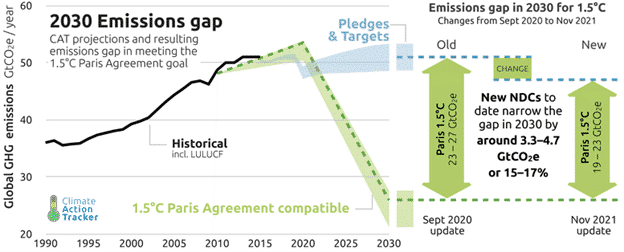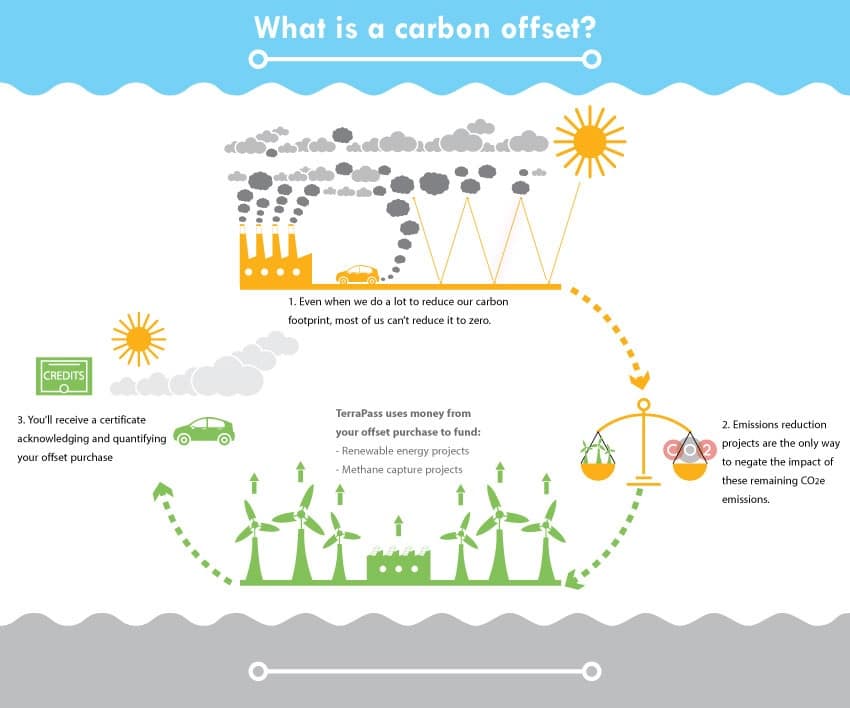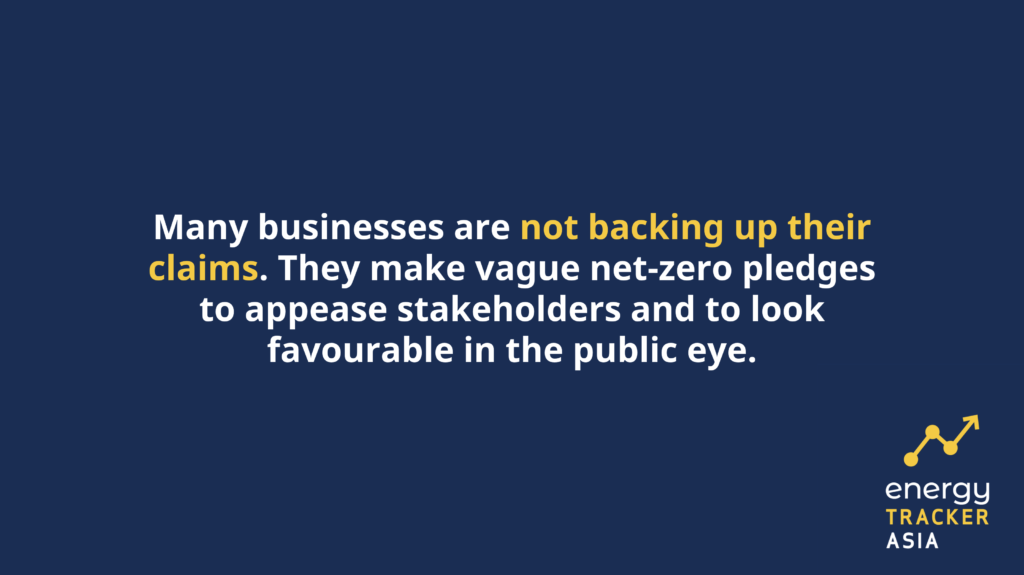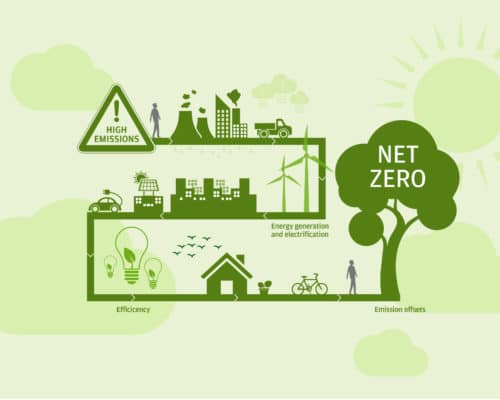Net-Zero Companies: Vague Pledges Lead to Greenwashing
07 April 2022 – by Eric Koons Comments (0)
For many nations around the world, companies achieving net-zero is critical in order to meet their larger decarbonisation plans and net-zero commitments. The general consensus is that this needs to happen by 2050, but some experts say it needs to happen sooner. Regardless of the timeline, change needs to happen – and it needs to happen fast.
Pressure on Companies to Achieve Net-Zero Emissions
Countries and companies are coming under increasing pressure from multilateral agreements, governments, and the public to reduce their carbon footprints to limit global warming and reach net-zero emissions. Consumers, investors, and business partners are all placing more value on the environmental policies that companies abide by.
Companies are being pushed to make positive environmental changes to their business activities and adopt energy efficiency. As a result, most businesses have now announced climate change pledges. Most of these revolve around going net-zero by 2050 or earlier – but there is a problem with that.

Studies show that many businesses are not backing up their claims. They make vague net-zero pledges to appease stakeholders and to look favourable in the public eye. However, many of these companies continue to operate without keeping their pledges.
How Helpful are Net-zero Pledges in achieving Net-Zero Targets?
There are a few issues when it comes to net-zero pledges:
- The meaning of “net-zero” is not clearly defined.
- We are not holding companies accountable for their claims.
- Companies can exaggerate their results.
- Companies may buy carbon offsets without changing their behaviour.
- There is no universal rule on which emissions should be in a company’s report.
Companies pay attention to the environment, and talking about its importance is good. Some companies are making genuine efforts to reduce their own emissions with honest and transparent reporting. However, some are not.
Companies use many terms that more or less mean the same thing: net-zero, carbon-neutral, climate positive, carbon-negative and net-negative emissions. The definitions of which are largely open to interpretation. There is no standard.
There is also no regulatory body to police the claims made by companies. Also, only a few organisations will review companies’ claims and compare them to their net-zero strategies and progress. Therefore, the responsibility for a verdict on climate responsibility falls to the court of public opinion.
Without strict regulation and enforcement, companies can exaggerate their environmental stewardship and the umbrella of effects under their jurisdiction. Some of the offsets purchased by companies are based on claims that are difficult to verify and thus lead to inaccurate net emissions reporting.

Finally, not all companies report their emissions in the same way. It’s been generally accepted that Scope 1 and Scope 2 emissions, which come from a company’s direct activities, should be reported. However, Scope 3 emissions, which account for their supply chain, are a grey area. Some companies report Scope 3 emissions, but many do not.
How Companies in the Global Economy Use Net-zero to Hide Their Dirty Habits
Like those listed above, many factors allow companies to use net-zero claims to hide their dirty habits. Stock market performance is tied to positive environmental press announcements. There is a clear incentive to to promote green policies publicly.
These days, it can be difficult to tell which companies are serious about making changes to protect the environment and which companies are just making baseless claims. Two of Shell’s most important carbon offsetting projects have not demonstrated any clear benefit to the climate; Walmart and Saudi Aramco do not pay any attention to Scope 3 emissions; Exxon reported its Scope 3 emissions for the first time in 2021 but quickly voiced its displeasure with the process and delegitimised its impact. They have distanced themselves from their Scope 3 emissions, blaming the consumers who use their oil and gas products.
Net-zero Tracker has assessed the world’s largest publicly traded companies to find that their policies and activities generally undermine any real opportunity to achieve net-zero operations. There needs to be a standard reporting mechanism if we want to be serious about living in a carbon-neutral world.

Net-Zero Accountability and Its Critical Importance for Our Future
Read moreWhat Can Net-Zero Companies Do to Prevent Greenwashing and Reduce Greenhouse Gas Emissions?
Greenwashing is the act of exaggerating or falsifying carbon emissions reports or advertising. It is highly frowned upon, but companies do it to appear positively in consumers, investors, and partners’ eyes and minds. Companies that participate in greenwashing face a lot of backlash from environmentalists and the public. They lose respect, trust, investments and sales, which are hard to earn.
Reports find that 73% of millennials and 62% of Gen Z prefer to support sustainable brands. In the days of rapid information transfer and social media, greenwashing can mean the death of a company in the eyes of sustainability-minded individuals.
The best thing net-zero companies can do to save face, even if they are big polluters, is to be completely honest and transparent about their activities. Providing a clear strategy with measurable goals and objectives will signal to the public that the company is serious about making a change. Being honest, instead of greenwashing, is the best way to build trust with investors, consumers and other brands. It is also the best way to ensure a better future for the planet.

by Eric Koons
Eric is a passionate environmental advocate that believes renewable energy is a key piece in meeting the world’s growing energy demands. He received an environmental science degree from the University of California and has worked to promote environmentally and socially sustainable practices since. Eric’s expertise extends across the environmental field, yet he maintains a strong focus on renewable energy. His work has been featured by leading environmental organizations, such as World Resources Institute and Hitachi ABB Power Grids.
Read more

